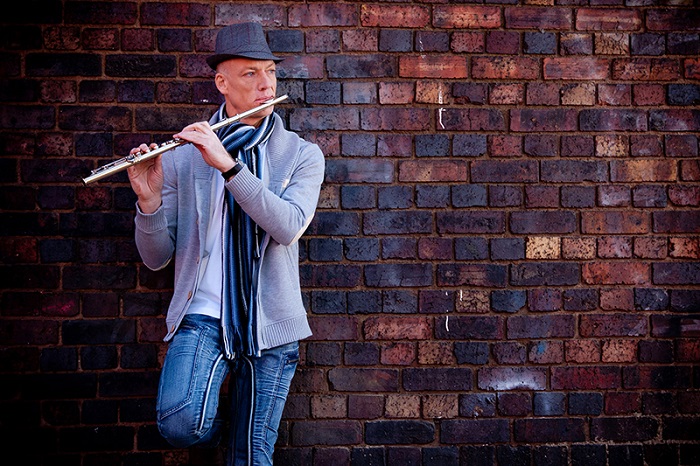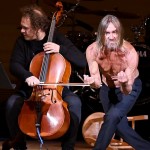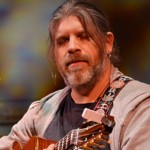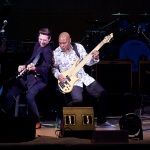
Wouter Kellerman’s adventurous, tender, spirited new hit album, Love Language, originally started as a small acoustic project. In 2012, the South African flutist and world music composer put it on the shelf for a while, turning his attention to a bigger project with Bengaluru-based composer and producer Ricky Kej. The result, their Winds of Samsara album, won the 2015 Grammy for Best New Age Album, attracting fans from South Africa to North America to Asia.
Love Language, now reimagined and fully produced with rich, soaring arrangements of flute, guitar, bass and percussion, debuted at Number One on September 13 and, as of November 1, was Number Two. The album’s theme–the ways people of different cultures express their love through music–is stealing across borders and winning listeners worldwide.
This idea is beautifully realized in his yearning recording of the American folk ballad, “Shenandoah,” in which a white trapper asks a Native American chief for his daughter’s hand in marriage. “When I put together some of my favorite pieces, I realized they really were from all over the world, and I then started thinking about the idea of putting it all on one album with the Love Language concept,” Kellerman explained at the afterparty following his recent Carnegie Hall concert. Asked whether his music has a mission for social change, Kellerman nodded. “I think peace and tolerance go hand in hand. And intolerance stems in part from not knowing and understanding each other.”
That mission is also clear in his music videos, which put a human face on human rights issues. The video for “Aishwarya” (produced by Sarian), a song composed by Kej, is the five-minute story of a determined, young woman wants an education, despite her family’s discouragement. “Listening to each other’s music is a strong step towards understanding and accepting each other,” Kellerman explains, “so by introducing people to music from different cultures, I am doing my little bit to bring harmony to this world.”
At Carnegie Hall, his quartet (two acoustic guitars, bass and percussion) brought a subtle South African flair to the traditional Irish love ballad, “Si Do Mhaimeo.” “Irish music is so widely heard and I have heard plenty since childhood, so I suppose it was inevitable that Irish influences will find its way to my music. It does seem to have some common elements with African music,” he added. Kellerman has as wide a musical range as any electric guitar player.
On “Brian Boru’s March,” he astonished the audience by beat boxing or, as he calls it, “flute boxing,” using breath to make sounds inside the flute, at other times almost singing through the flute. Of course, flutes have been made and played whenever and wherever clay or wood or metal could be shaped to allow breath to make a sound, so there is traditional music to explore for years to come. “I play the bass flute, alto flute, C flute, fife, then also various ethnic flutes. I have spent a lot of time on classical training and clean articulation is very much a part of that. And then I have been experimenting with some of my own ideas as well.”
On the “Irish Hornpipe,” his deft variations on the melody drew cheers and whistles.
At Carnegie Hall, a standout from the new album was “The Long Road,” Kellerman’s solo flute composition about Nelson Mandela’s life, from his youth in the country, to young manhood in the city, to maturity and family life. Mandela’s love for South Africa, and South Africa’s love for Mandela, were evident in the music. At Carnegie Hall, the encore was a Gumboot dance by Kellerman and bassist Phresh Makhene. “Gumboot dancing is a traditional South African dance that the miners developed,” he told his listeners. The two musicians removed their shoes and put on knee-high rubber rainboots. Then, they beat out a rhythm with their feet, clapping their hands on their knees and hips in intricate patterns of sound. The audience cheered with delight and the night ended with the expression of love understood in any language–a well-deserved standing ovation.
—Annie Dinerman







Be the first to comment!